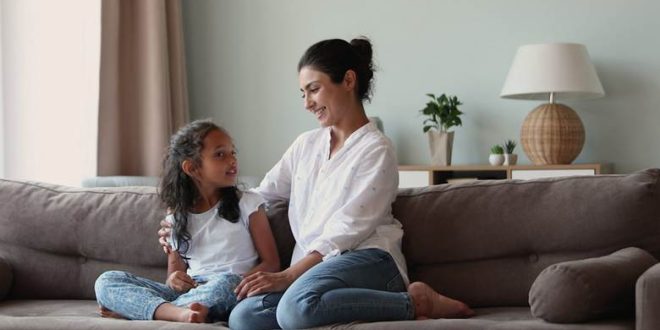When parents consider guardianship decisions, it’s crucial to reflect on not just the practical aspects but also the emotional implications involved. Explaining who will take care of your children in the event of unforeseen circumstances is a delicate topic. Engaging with your kids about guardianship can seem daunting, but it is a necessary conversation that should begin at an early age.
Many parents overlook the importance of preparing their children for such discussions. In an environment where families can change due to life’s unexpected events, ensuring kids understand their security is paramount. This task can help ease their concerns and reinforce their sense of stability.
Interestingly, even though a significant number of Americans recognize the importance of estate planning, many have not taken the necessary steps to secure these plans. According to AARP, only about one-third of Americans have established any form of estate plan. This statistic is concerning, particularly for families with young children, as having a guardianship plan is part of responsible parenting.
Understanding Guardianship
To explain guardianship effectively, parents should start by clarifying what it means. Guardianship refers to the legal responsibility assigned to someone to care for a child in case their parents become unable to do so. Fostering a general understanding can pave the way for children to feel secure in their future.
It’s important to choose language that resonates with your child’s age and comprehension level. For young children, framing this concept in familiar terms can make abstract ideas more tangible. For instance, you can compare guardianship to having a favorite adult take care of them when their parents are away.
According to Kokotree, the average age children start attending preschool is around three to four years old, making this a critical time for discussions about safety and care. Guiding them through the concept of guardianship sensitively allows them to grasp who their support system could be in challenging scenarios.
The Importance of Open Communication
Open lines of communication are vital when discussing guardianship options. Parents should feel encouraged to talk with their children in a comforting and open environment, allowing them to ask questions and express their feelings. Transparency builds trust and helps children understand the depth of the conversation.
Additionally, it’s helpful to regularly bring up discussions about family roles and relationships. This regular engagement will prepare your children to accept conversations about guardianship more comfortably. It encourages emotional security as they grow to recognize the importance of their support network.
Despite the acknowledgment of the importance of estate planning, statistics show that only about 31% of Americans have created a will, according to Financial Sense. This lack of preparation can leave families in a challenging position, emphasizing the need for clear communication that extends to discussing who would step in as guardian if necessary.
How to Introduce Guardianship Plans
Introducing guardianship plans to your children can be done in stages. Start by explaining why you are discussing such important matters. Emphasizing the idea of “home” being a safe and loving place can help them appreciate that guardianship is part of keeping them safe.
Sharing your thoughts about who you would want to care for them and why can make the discussion feel more personal. This approach reinforces the love and security that should always exist in their lives, and it brings reassurance that someone will always be there, no matter what.
As families prepare for the unexpected, they should also regularly revisit these guardianship plans. Children grow, and family dynamics can shift, often influencing who might be the best choice for a guardian. Engaging in ongoing dialogue allows families to adapt these discussions as needed and ensures that all family members, including children, feel actively involved in the process.
By taking proactive steps today, you can ensure your children not only comprehend the “why” behind such plans but also instill in them the confidence that they will be loved and cared for, no matter what the future may hold.
It’s never too early to start these conversations, and as guardianship is a crucial aspect of responsible parenting, every family should consider fostering this dialogue right at home.
 Blogging Heros
Blogging Heros




